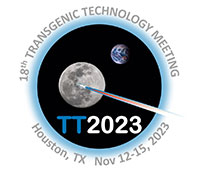Confirmed Speakers
- Richard Behringer – MD Anderson Cancer Center, USA
- Fernando Benavides – MD Anderson Cancer Center, USA
- Evan Buettmann – Virginia Commonwealth University, USA
- Mitra Cowan – McGill University (MICAM), Canada
- Daniel Davis – Washington University School of Medicine, USA
- Mary Dickenson – Baylor College of Medicine, USA
- Henry Donahue – Virginia Commonwealth University, USA
- Elsa Flores – Moffitt Cancer Center, USA
- Michael Friedman – Virginia Commonwealth University, USA
- Marco Horb – Marine Biological Laboratory, USA
- Bonnie Kircher – MD Anderson Cancer Center, USA
- Hiroshi Kiyonari – Riken, Japan
- Shruti Kumar – McGill University, Canada
- Xiao-Hong Lu – LSU Health Shrewport, USA
- Cat Lutz – Rare Disease Translational Center
- Loydie Jerome-Majewska – McGill University, Canada
- Alejo Menchaca – Fundación IRAUy, Uruguay
- Ashley Rasys – National Eye Institute, USA
- Phillipe Soriano – Icahn School of Medicine at Mt. Sinai, USA
- Kenneth Walsh – University of Virginia, USA
- Shinya Yamamoto – Baylor College of Medicine, USA
Speakers Biographies

Professor Richard Behringer
Richard BEHRINGER is a Professor in the Department of Genetics and Ben F. Love Chair for Cancer Research at the University of Texas M.D. Anderson Cancer Center in Houston, Texas. Dr. Behringer’s research focuses on mammalian developmental genetics, including organogenesis, stem cells, and evolution. Dr. Behringer also conducts field studies of marsupials on Kangaroo Island in Australia and bats on the Caribbean island of Trinidad. Previously, he was the Director of the Molecular Embryology of the Mouse course at the Cold Spring Harbor Laboratory and Director of the Embryology course at the Marine Biological Laboratory in Woods Hole. He is one of the editors of the 3rd and 4th editions of Manipulating the Mouse Embryo: A Laboratory Manual and co-author with Dr. Virginia Papaioannou of Mouse Phenotypes: A Handbook of Mutation Analysis both published by CSHL Press. He is an advocate for developmental biology, genetics, and reproductive biology (@rrbehringer).

Dr Fernando Benavides
Dr. Fernando Benavides is Professor and Director of the Laboratory Animal Genetic Services at MD Anderson Cancer Center, Houston, Texas. Dr. Benavides received a D.V.M and a Ph.D. in Genetics from the University of Buenos Aires, Argentina. His Ph.D. training on Mouse Genetics was done at Institut Pasteur, Paris, France. Dr. Benavides is a diplomate of the American College of Laboratory Animal Medicine (ACLAM) since 2003 and he serves as IACUC veterinarian for the MD Anderson since 2006. Dr. Benavides has a strong background in positional cloning of spontaneous mutations and has described several new mouse models. He has published several books, chapters and reviews on Mouse Genetics and Genetic Quality Controls in mice and rats.
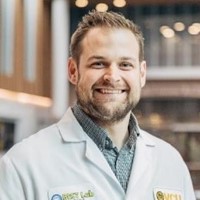
Dr. Evan Buettmann
Dr. Evan Buettmann is currently a Translational Research Institute for Space Health (TRISH) Postdoctoral Fellow in Dr. Henry Donahue’s Lab at Virginia Commonwealth University. His main research goals are to improve rehabilitation and treatment strategies for patients suffering from bone and muscle trauma during musculoskeletal disuse (spaceflight, bedrest) and aging. In the Donahue Lab, Dr. Buettmann has used Cre_LoxP gene-modified mice to better understand the role by osteoblast and osteocyte intercellular communication and skeletal disuse with and without mechanical intervention affect bone fracture healing. Dr. Buettmann’s future areas of study utilizing gene-edited animals include testing mechanical, optogenetic and pharmaceutical interventions to improve bone healing during disuse and aging.

Mitra Cowan
Mitra Cowan expertise is in the transgenesis field and is trained in reproductive biology and embryonic stem cell technologies. She started her career running the Johns Hopkins School of Medicine Transgenic core until 2004 before developing a new Transgenic Core at the Centre de Recherche du Centre Hospitalier de l’Université de Montréal (CRCHUM) in Montréal, Canada. In 2017 Mitra accepted the position of Associate Director of the McGill Integrated Core for Animal Modeling of McGill University. In the last 5 and a half years the MICAM platform has now created now over 300 new animal models using Crispr technology and continues to expand its expertise to be a leader of creation of animal models in Quebec.
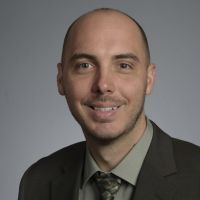
Daniel Davis
After a short time in the biotechnology industry, I joined the Transgenic Vectors Core laboratory at Washington University School of Medicine in 2009. There I used recombineering approaches and ES cell targeting to generate mouse models, and was on the forefront of synthesizing and using engineered nucleases as they were optimized for genome editing over the next few years. In recent years, I helped start and develop the Animal Modeling Core (AMC) at the University of Missouri where I am currently the Assistant Director and an Assistant Research Professor. Most of my transgenic animal experience is with mice and rats, however, I have worked with projects involving fruit flies, zebrafish, pigs, cats, and other species as well.

Dr Mary Dickinson
Dr. Mary E. Dickinson is the Senior Vice President and Dean of Research at Baylor College of Medicine. She is a Professor with appointments in Integrative Physiology, Molecular and Human Genetics and Medicine and holds the Kyle and Josephine Morrow Endowed Chair. Dr. Dickinson received her Bachelor’s degree from Vanderbilt University, PhD from Columbia University and carried out post-doctoral work at Caltech. She has built an exciting, well-funded, interdisciplinary program to study essential genes and early embryonic cardiovascular defects using innovative imaging technology. She has authored more than 150 manuscripts and holds multiple patents. Over the last 15 years she has held several leadership roles at BCM and within the greater scientific community and she currently leads the NIH-funded Mouse Knockout Project in addition to her role as Dean. Dr. Dickinson oversees a growing and thriving research mission with over $650 million in outside research awards and her oversight includes Research Strategy, Research Administration and Sponsored Research, the Office of Clinical Research, the Advanced Technology Cores, the Center for Comparative Medicine, Research IT and our Research Assurances offices.

Dr Henry Donahue
Dr. Donahue is the Alice T. and William H. Goodwin, Jr. Endowed Chair and Professor, Department of Biomedical Engineering at Virginia Commonwealth University. He received his Ph.D. in Biology from the University of California, Santa Barbara and completed a post-doctoral fellowship at the Mayo Clinic. He has over 35 years of experience studying musculoskeletal biology, using both in vitro and in vivo models. His research focuses on understanding the mechanism by which bone and muscle adapt to their mechanical environment; examining the effects of space flight on musculoskeletal tissues and exploiting biophysical signals, including shear stress and nanotopography, to develop innovative strategies to regenerate musculoskeletal tissue lost to disease, injury or ageing. He has used several genetically engineered mouse models to advance his research.

Dr Elsa Flores
Elsa R. Flores, Ph.D. is the Associate Center Director of Basic Science at Moffitt Cancer Center in Tampa, Florida. She is responsible for overseeing research and administrative operations in the division. Prior to her appointment as ACD of Basic Science, Dr. Flores served as Chair of the Department of Molecular Oncology and Program Leader of the Cancer Biology and Evolution (CBE) CCSG Program at Moffitt Cancer Center (2016-2022) and served as Program Co-Leader for the Metastasis Program at MD Anderson Cancer Center while she was a faculty member there. Dr. Flores was named an NCI R35 Outstanding Investigator in 2015 and has won numerous prestigious awards throughout her career. She is a Moffitt Distinguished Scholar and holds the Kaul Foundation Endowed Chair. Dr. Flores is currently the contact PI on an NCI funded P01
program project grant focused on identifying metabolic vulnerabilities in lung cancer and CoPI on an innovative postdoctoral training program funded through an NCI T32 to train postdocs working at the interface of molecular cancer biology and data science (Integrated Program in Cancer and Data Science – iCADs). In addition, she serves as Chair of the NIH study section, Gene Regulation in Cancer (GRIC).

Dr. Michael Friedman
Dr. Michael Friedman is a Research Assistant Professor in Dr. Henry Donahue’s lab in Biomedical Engineering at Virginia Commonwealth University. Michael received a BS in BME from University of Texas at Austin and a MSE and Ph.D. in BME from University of Michigan. Michael’s research is aimed at studying the effects of genetic variation on the musculoskeletal response to disuse. This groundbreaking work has led to awards from the NASA Translational Research Institute for Space Health, Orthopaedic Research Society and American Society for Bone and Mineral Research. Michael is interested in establishing a lab studying how genetic variation affects the musculoskeletal response to exercise and disuse.
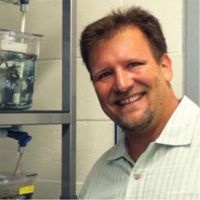
Marco Horb
Graduate studies at Stony Brook University in Gerald Thomsen lab working on T-box genes in early embryogenesis; graduated in 1998. Postdoc at University of Bath with Jonathan Slack working on pancreas development in Xenopus. Started independent lab at Clinical Research Institute of Montreal in 2003. Recruited to be first Director of National Xenopus Resource in 2011 where I have been ever since. Focusing research on making models of human disease in Xenopus and improving resources for the Xenopus community.

Dr Bonnie Kircher
Dr. Bonnie Kircher is a postdoctoral researcher in Richard Behringer’s laboratory at the University of Texas MD Anderson Cancer Center. She received her PhD from the University of Florida with Dr. Martin Cohn after beginning her work with anole lizards as a technician in the laboratory of Dr. Michele Johnson at Trinity University. She has now been working with anoles for over 10 years and is interested in understanding how sex differences arise during pre- and post-embryonic development. She currently studies the reproductive system in the brown anole and is using recently devised genome editing techniques to understand the role that steroid hormone signaling plays in sex-specific development in reptiles.

Hiroshi Kiyonari
Experimental model animals have served as essential tools in recent advancements in biomedical research. Since 2002, my laboratory supports investigators at the RIKEN BDR, JAPAN in various aspects of laboratory animal experiments by managing the centralized animal facilities and providing technical assistance in reproductive biology and embryology, as well as education and training pertaining to animal experimentation. In addition, I have incorporated a critical supporting activity for generation of genetically engineered mice to the research community in Japan and Asia. Collectively, I aim to develop new tools and resources in the mouse and other small vertebrate species as in vivo models to meet the evolving animal research needs.

Shruti Kumar
Shruti Kumar is a fifth-year Ph.D. student in the lab of Dr. Loydie Jerome-Majewska in the department of Human Genetics at McGill University. She completed her master’s degree in developmental biology with Dr. Tamara Franz-Odendaal, where she studied the pattering of bones in the eyes using chicken embryos. During this time, she became interested in studying craniofacial development as well as the etiology of disorders that affect the craniofacial region in newborns. Her current research aims to model the rare disorders caused by pathogenic mutations in Sf3b4, Nager and Rodriguez syndromes in mouse. She will use these mutant models to identify key pathways or mechanisms involved in the development of the facial skeletal structure that are sensitive to changes in Sf3b4. For her research, Shruti has received trainee fellowship awards from the Center for Research in Reproduction and Development, as
well as the Child Health and Human Development programs through the Research Institute of the McGill University Health Centre.

Dr Xiao-Hong Lu
Dr. Lu’s research focuses on molecular genetics of neurodegenerative and psychiatric disorders and developing novel transgenic technologies. Trained as a psychiatrist, Dr. Lu received training in molecular genetics at the Center for Neurobehavioral Genetics of the University of California, Los Angeles (UCLA). Dr. Lu developed the first BAC transgenic Parkinson’s disease (PD) mouse model that recapitulates the cardinal features of the disease. His translational study in a transgenic mouse model of Huntington’s disease (HD) identified a novel therapeutic strategy. Dr. Lu co-invented single-cell transgenic technology (MORF, Mosaicism with Repeat Frameshift) for cell-type specific single-neuron genetic labeling and perturbation. Funded by NARSAD, Dr. Lu generated a VIPR2 duplication mouse model of schizophrenia. His recent work focuses on developing novel transgenic technologies and animal models, including an in vivo genetic sensor of genotoxic stress, PRISM, to evaluate spaceflight hazards and confer human radioresistance. Dr. Lu is funded by grants from NASA, NIEHS, and NIGMS.

Dr Cat Lutz
As the Vice President of the Rare Disease Translational Center (RDTC) at The Jackson Laboratory (JAX), Dr Lutz works with patient-based foundations, researchers, and industry partners to roadmap therapeutic strategies for rare diseases. Her work involves the engineering of preclinical mouse models that represent patient-based mutations and the subsequent phenotyping of the mice to explore clinically relevant, translatable phenotypes. Follow-on preclinical drug safety and efficacy programs then explores therapeutics in these models that can be advanced into the clinic. Previously, founded and served as the Senior Director of the In Vivo Pharmacology at JAX in our Bar Harbor campus for seven years. She was responsible for establishing the preclinical drug-efficacy testing service for neurological disorders and continue to work closely with this department in the administration of therapeutics.

Dr Loydie Jerome-Majewska
Dr. Loydie Jerome-Majewska is an Associate Professor in the Department of Pediatrics, and associated member of the Departments of Human Genetics and Anatomy and Cell biology at McGill University. She completed her PhD work with honors in the laboratory of Dr. Papaioannou at Columbia University, NYC, USA and completed a post-doctoral fellowship with Dr. E. Lacy, at Sloan Kettering Cancer Centre. Dr. Jerome-Majewska’s group uses the mouse model to study the genetic and cellular basis of morphogenesis during the embryonic period. Goals of her research program are to identify genes responsible for congenital malformations that increase morbidity and mortality in newborns. Her work using Next Generation sequencing and gene engineering has helped to explain the etiology and pathophysiology of several syndromes including: 22q11.2 deletion syndrome, CEDNIK syndrome and the spliceosomopathies: CCMS, MFDM and Nager syndrome. The current goals are to identify factors which can be used to prevent/reduce morbidity associated with congenital malformations. Her work is funded by the Canadian Institute of Health, Natural Sciences and Engineering Research Council of Canada and the Azrieli Foundation.

Alejo Menchaca
His first contributions were in the field of ovarian physiology and reproductive biotechnologies for designing new tools in different species, implemented worldwide mainly in cattle, sheep and goats. He has explored different approaches to understand the ovarian function, and to control the ovulation for estrous synchronization and artificial insemination, as well as for improving superstimulation and embryo transfer technology, in vitro embryo production, and oocyte and embryo cryopreservation. Also, with the arrival of CRISPR/Cas technology, his team produced pioneer achievements on genome editing in farm animals, particularly by reporting in 2015 one of the first births in livestock in the world.
As a consultant for pharmaceutical companies, he has contributed to the development of a synthetic like-eCG compound, with promising results recently reported in mice and other species. Facing the growing threat of eCG unavailability, this kind of approach represents a quote of hope in the breeding management of mice worldwide. In addition, he has many publications and huge experience with conventional eCG production in mares, animal welfare concerns, and use of this hormone in different species.
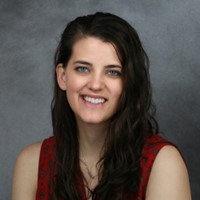
Dr Ashley Rasys
Dr. Ashley Rasys is a veterinarian clinician scientist. She graduated from the University of Georgia with her doctorate degree from College of Veterinary Medicine and received her PhD from the department of Cellular Biology in 2022. Her research focused on understanding the cellular and molecular mechanisms underlying the development of the fovea of the eye, which is a pit-like structure that is critical for vision in the retina of
humans and some vertebrates. Ashley investigated fovea development in the Brown anole lizard and pioneered the development of gene-editing technology in this species.
For her contributions, she received the Boehringer Ingelheim Veterinary Research Award for Graduate Veterinarians and the University of Georgia’s Excellence in
Research Award. She is also an ARCS Foundation Scholar and over the years, has received several fellowships and grants to support her research. She is currently continuing her work investigating fovea development in lizards as a postdoctoral fellow with the Hufnagel group at the National Eye Institute apart of the National Institutes of
Health.

Dr Phillipe Soriano
Bio coming soon.

Toru Takeo
Toru Takeo is a Professor at the Center for Animal Resources and Development (CARD), Institute of Resource Development and Analysis, Kumamoto University in Kumamoto, Japan. In 2008, he earned a PhD from the Graduate School of Pharmaceutical Sciences of Kumamoto University. Thereafter he started his research on mouse reproductive technology at CARD. He has established a robust system of mouse sperm cryopreservation and in vitro fertilization and continuously improved reproductive technologies in mammals. In 2020, he became a Professor of CARD. He directs CARD mouse and rat banks and an animal facility and works as a scientific association member of JALAS, AMMRA, and ISTT.

Kenneth Walsh
Ken Walsh is the Lockhart B. McGuire Professor and Director of the Hematovascular Biology Center at the University of Virginia. The Walsh Lab broadly examines the molecular events that control cellular growth, differentiation and death. Their newest studies investigate “clonal hematopoiesis” and how this condition contributes to age-associated diseases. Although primarily focused on cardiovascular health, studies of clonal hematopoiesis have major implications for seemingly unrelated diseases, such as diabetes and cancer, and it may contribute to biological aging per se. Dr. Walsh obtained his PhD in Biochemistry from the University of California, Berkeley and performed post-doctoral studies at the Massachusetts Institute of Technology. Dr. Walsh has published more than 400 scientific articles and he is the recipient of multiple research grants from the National Institutes of Health, including a prior MERIT Award, the National Aeronautics and Space Administration and the Department of Defense.

Dr Shinya Yamamoto
SHINYA YAMAMOTO is an Assistant Professor in the Department of Molecular and Human Genetics at Baylor College of Medicine and an Investigator in the Jan and Dan Duncan Neurological Research Institute at Texas Children’s Hospital in Houston, Texas. Dr. Yamamoto serves as the Co-Director of the Model Organisms Screening Center for the Undiagnosed Diseases Network which uses the state-of-the-art genetic technologies in the fruit fly Drosophila melanogaster and other model organisms to discover and study new human disease-causing genes and rare variants in vivo. He also co-leads efforts to generate a comprehensive collection of transgenic and mutant fly strains that allow ‘humanization’ of thousands of Drosophila genes. In addition, Dr. Yamamoto has been developing online tools such as MARRVEL (http://marrvel.org) and ModelMatcher (https://www.modelmatcher.net). to facilitate collaborations between basic scientists and clinical researchers at a global scale.
